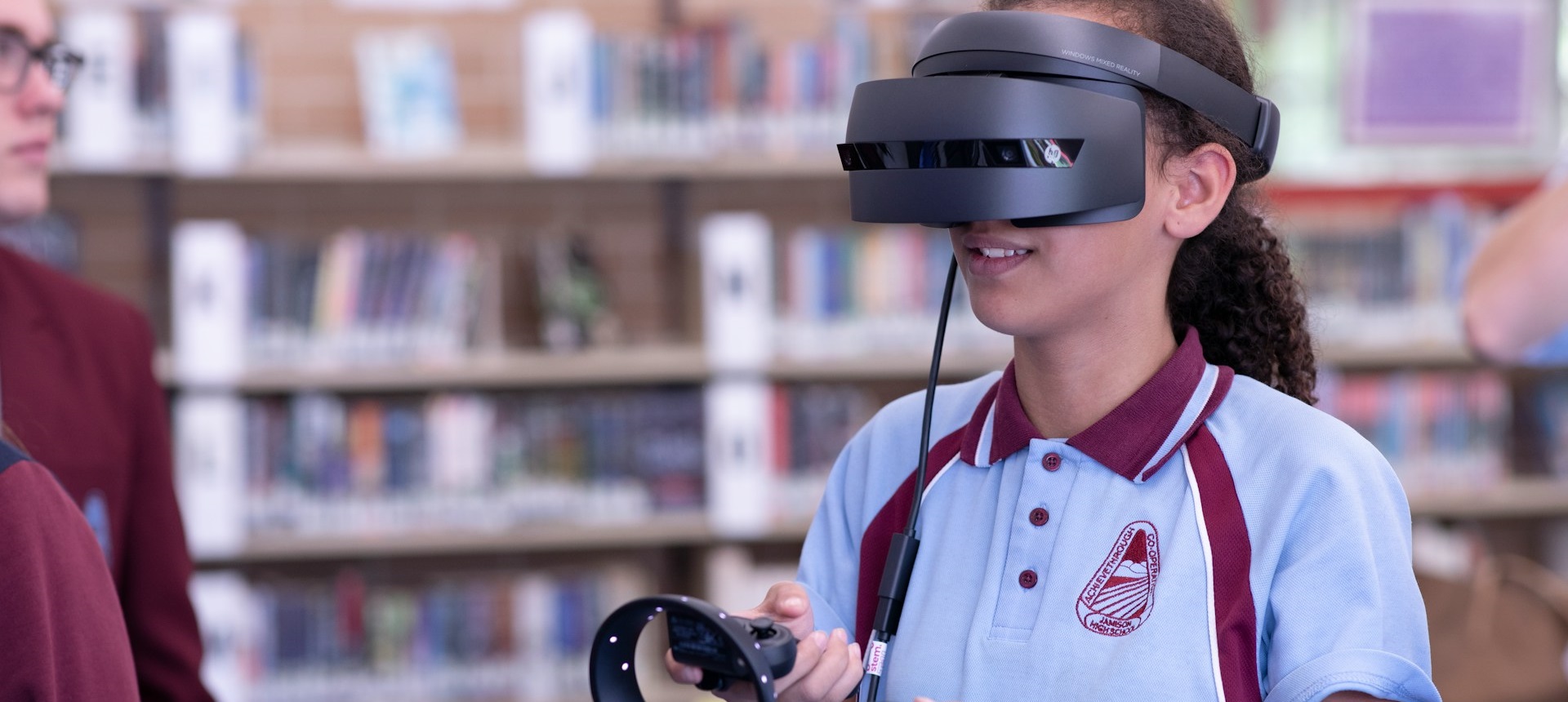1. IDC: Expect big rebound in global AR/VR headset shipments in 2024
After a 23.5 per cent drop in global shipments for augmented reality (AR) and virtual reality (VR) headsets in 2023, shipments are expected to surge by 44.2 per cent in 2024, according to IDC’s Worldwide Quarterly Augmented and Virtual Reality Headset Tracker. “It will be exciting to watch how the market will evolve from today’s experiences and how end-users will adapt to them,” says Ramon T. Llamas, an IDC research director. “Mixed reality (commonly referred to as MR, the ability for users to toggle between augmented and virtual reality) has been the exception and not the norm, but Apple has shone a bright light on MR with the Vision Pro. Next, look at how companies will increasingly incorporate artificial intelligence to analyze data and generate virtual content for the user. Finally, display technology will move from content consumption to content interaction with more sophisticated sensors and displays.”
2. AR tests show potential to improve accuracy of clinical procedures
A medical study found that augmented reality (AR) technology could improve the clinical performance of procedures such as biopsies and thermal ablations. The researchers used a Microsoft HoloLens 2 headset combined with 3D anatomical models and live ultrasound to provide accurate visualisation and navigation during procedures.
3. Talent development pros view AR/VR learning as ‘innovative yet expensive’
Although three-quarters of talent development professionals say they are excited about the potential of immersive learning technologies, only 4 per cent of TD organisations have so far used augmented reality (AR) and only 7 per cent have used virtual reality (VR), research by the Association for Talent Development has found. “TD professionals think immersive learning is an innovative yet expensive form of learning,” writes Rocki Basel, associate director of ATD Research.
4. Capgemini: Businesses must start testing new AR/VR tools to better engage employees
Capgemini predicts that 2024 will be the year when the use of immersive technologies will begin to mature across a wide range of industries. With research showing that only 29 per cent of employees are happy with the collaboration tools they currently have at work, Capgemini says organisations will need to start testing recently launched AR/VR consumer devices so they can engage and attract a new generation of workers.
5. AR has potential to increase community engagement: Study
Augmented reality has the potential to help build a stronger sense of community, a research team has found. By surveying 449 players of Pokémon Go, the researchers from Northern Illinois University identified benefits such as meeting new people (88 per cent), visiting a new location (78 per cent) and patronising a new business (35 per cent). The study states that “areas such as town centers or college campuses could benefit from welcoming augmented reality games as these games have the potential to increase community engagement.”
6. AR/VR shows how environmental design could benefit episodic memory
Augmented reality (AR) and virtual reality (VR) could be used to help design environments that support neurocognitive rehabilitation and people with spatial processing impairments, according to a study published in the journal Nature. The study, in which participants took lifelike AR and VR museum tours, showed that episodic memory improved significantly for locations located close to stairways, compared to those near dead ends or other locations.
7. Oracle: Manufacturers should look to AR/VR for vital reskilling
In its outlook for top industrial manufacturing trends in 2024, Oracle says that manufacturers must do more to attract employees with the technical skills they require. They will also need to adopt new strategies to retain and reskill existing employees: “Employers should look at a variety of different reskilling programs, including live courses (both online and in-person), recorded video, and those that make use of augmented/virtual reality.”
8. For British users, top appeal of AR/VR headsets is video gaming
A YouGov survey found that 8 per cent of British consumers currently own an AR/VR headset and that 7 per cent plan to buy one in the next 12 months. For 46 per cent of respondents, the top AR/VR use reported is video gaming. Other applications include ‘learning about destinations before I visit them’ (32 per cent), ‘learning new skills or subjects’ (24 per cent), ‘watching movies’ (24 per cent), ‘watching sport’ (17 per cent) and ‘visiting new places’ (17 per cent).
9. Performance on VR spatial navigation tests could indicate Alzheimer’s risk
Virtual reality (VR) could be used to identify a risk for developing Alzheimer’s disease, according to a study that tested 100 adults wearing VR headsets. The tests showed that participants with a known risk for Alzheimer’s showed impairment during spatial navigation tasks using VR, even though they showed no impairment on other cognitive tests.
10. Researchers identify ‘Inception’-like vulnerability in Meta Quest
Researchers at the University of Chicago have identified an “Inception”-like security vulnerability in Meta’s Quest virtual reality (VR) system in which hackers can inject malicious code into the system, then trap users inside a malicious clone of the VR environment and applications. While the user experiences what appears like the usual VR environment, the hacker can record and modify passwords and actions. “Only 37% of users noticed the momentary visual ‘glitch’ when the inception attack began, and all but 1 user attributed it to imperfections in the VR platform,” the researchers write. To date, such attacks have not been observed in the wild and Meta says it plans to review the study’s findings, MIT Technology Review reports.








